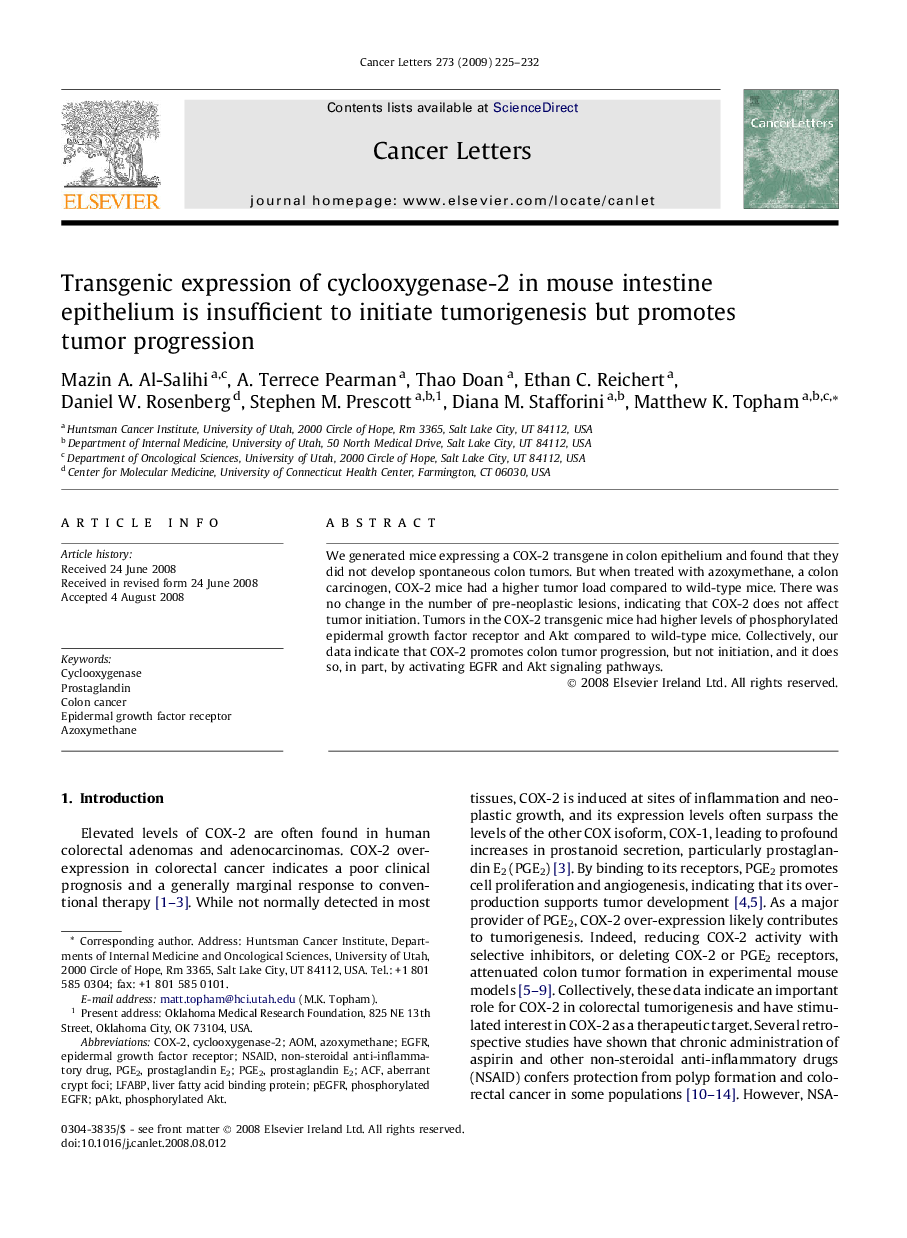| Article ID | Journal | Published Year | Pages | File Type |
|---|---|---|---|---|
| 2114677 | Cancer Letters | 2009 | 8 Pages |
Abstract
We generated mice expressing a COX-2 transgene in colon epithelium and found that they did not develop spontaneous colon tumors. But when treated with azoxymethane, a colon carcinogen, COX-2 mice had a higher tumor load compared to wild-type mice. There was no change in the number of pre-neoplastic lesions, indicating that COX-2 does not affect tumor initiation. Tumors in the COX-2 transgenic mice had higher levels of phosphorylated epidermal growth factor receptor and Akt compared to wild-type mice. Collectively, our data indicate that COX-2 promotes colon tumor progression, but not initiation, and it does so, in part, by activating EGFR and Akt signaling pathways.
Keywords
Related Topics
Life Sciences
Biochemistry, Genetics and Molecular Biology
Cancer Research
Authors
Mazin A. Al-Salihi, A. Terrece Pearman, Thao Doan, Ethan C. Reichert, Daniel W. Rosenberg, Stephen M. Prescott, Diana M. Stafforini, Matthew K. Topham,
